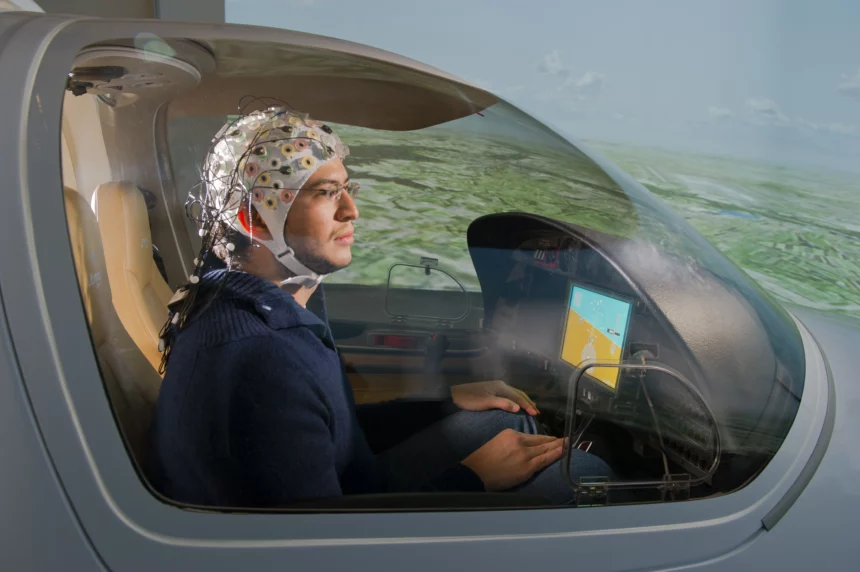A team of researchers from Germany’s Technische Universität München and TU Berlin has achieved a remarkable feat: in 2014 they’ve developed mind control technology that allows people to fly planes using only their thoughts. Led by Professor Florian Holzapfel, the team conducted tests with seven subjects, including one individual with no flying experience. Surprisingly, all subjects navigated virtual skies accurately enough to pass a flying license test.
How It Works
The researchers outfitted subjects with a cap embedded with EEG electrodes. These electrodes captured brain signals, which were then translated into flight commands using an advanced algorithm developed by TU Berlin scientists.
During flight simulator tests, participants showed impressive accuracy. One subject managed to follow eight out of ten target headings with only a 10-degree deviation. Some even performed landing approaches under challenging conditions, with one pilot landing within a few meters of the centerline.

According to Tim Fricke, head of the EU-funded project “Brainflight,” the long-term goal is to make flying more accessible to everyone. While the technology may not enable just anyone to fly a plane immediately, it could enhance flight safety by allowing pilots to perform tasks more efficiently in the cockpit.
The scientists have logged their first breakthrough: They succeeded in demonstrating that brain-controlled flight is indeed possible – with amazing precision. Seven subjects took part in the flight simulator tests. They had varying levels of flight experience, including one person without any practical cockpit experience whatsoever. The accuracy with which the test subjects stayed on course by merely thinking commands would have sufficed, in part, to fulfill the requirements of a flying license test. “One of the subjects was able to follow eight out of ten target headings with a deviation of only 10 degrees,” reports Fricke. Several of the subjects also managed the landing approach under poor visibility. One test pilot even landed within only few meters of the centerline.
Techcrunch
“A long-term vision of the project is to make flying accessible to more people,” said engineer Tim Fricke in a release. “With brain control, flying, in itself, could become easier.”
The Brainflight project aims to revolutionize aviation by allowing average individuals to fly planes with minimal training. The team plans to showcase their technology at the “Deutscher Luft- ind Raumfahrtkongress” in September 2014.









